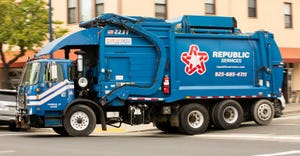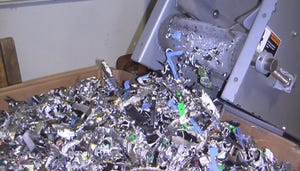FINANCE: Outside Monitors Attract Capital, Detect Abuses
June 1, 1996
Wendy C. Schmidt and Jonny J. Frank
Would you consider paying to have your business investigated?
This might be a foreign idea for most in the industry but not for waste companies trying to reach capital markets or those involved in mergers and acquisitions. These firms are finding they can alleviate concerns about their integrity and provide assurance to potential investors or lenders that funds will be spent properly and efficiently.
While most monitoring of the waste industry's business practices has been involuntary, increasing numbers of independent monitors, also known as Independent Private Sect-or Inspector Generals (IPSIG), have been voluntarily hired.
For example, prior to its recent purchase by a large waste management company, Brooklyn-based ReSource NE Inc. voluntarily accepted a monitor. Earlier, in preparation for being acquired or going public, ReSource took a number of steps to calm potential investors' concerns about the N.Y. City marketplace.
Initially, ReSource created an outside board of directors which appointed former Federal Judge Harold Tyler as special counsel. Judge Tyler, in turn, retained New York-based Decision Strategies In-ternational to serve as a fraud and corruption risk monitor. Its independent monitoring program is patterned after federal and state in-spector general programs.
Waste management companies also are using voluntary IPSIGs as a marketing tool to distinguish themselves from competitors - to prove that the company can be trusted as a result of the outside monitor's presence.
IPSIGs have been hired for waste haulers, transfer stations, recyclers and landfill operators. The monitor's objectives are to ensure that the business is developing internal controls and establishing a culture aimed at reducing and preventing fraud, waste and abuse by and a-gainst the observed company.
The monitor reviews business operating manuals, books and re-cords and other documentation. He or she also interviews key personnel, as well as conducts roundtable discussions with lower and middle management.
Using the information from a risk analysis (see chart) and the monitor's fraud and corruption risk management expertise, the IPSIG works with the business' ethics committee to improve its anti-fraud program.
Business controls and training programs are devised to manage vulnerabilities, and new audit procedures are established to assess ethics code compliance.
In addition to investigating specific allegations of wrongdoing, the monitor recommends and de-velops programs to detect corruption where no specific complaint has been filed.
The aim is to save the business money by deterring and detecting fraudulent conduct, promoting economies and efficiencies and adding real business value. To accomplish these goals, the IPSIG involves a multi-disciplinary team, typically led by a prosecution lawyer and including forensic ac-countants, risk loss specialists, in-vestigators and industry experts.
The courts have ordered IPSIGs on a number of occasions. For ex-ample, an outside monitor was hired by a court order on Long Is-land, N.Y., as a result of a civil RICO action brought by the U. S. Attorney's Office against more than 40 New York carters and numerous individuals.
The lawsuit alleged anti-trust violations and that the solid waste industry in Nas-sau and Suffolk Counties was "infiltrated, corrupted and controlled" by organized crime. In the lawsuit's settlement, a number of companies con- sented to a court-appointed compliance officer.
Other court-ordered monitors have resulted from the New York City District Attor-ney's long-term undercover in-vestigation of organized crime's infiltration into the carting business. Although there have been no convictions, these monitors supervise the indicted companies' fiscal practices while a-waiting trial.
Elsewhere, monitorships have resulted from regulation or legislation. In Babylon, N.Y., for example, the local government sought independent monitors for all the municipality's contracted companies.
In New York City, pending legislation to create special trade waste removal districts requires licensed carters to retain IPSIGs to oversee compliance with applicable federal, state and local laws. Even outside of these special zones, a carter must voluntarily hire an IPSIG to obtain a license.
You May Also Like


